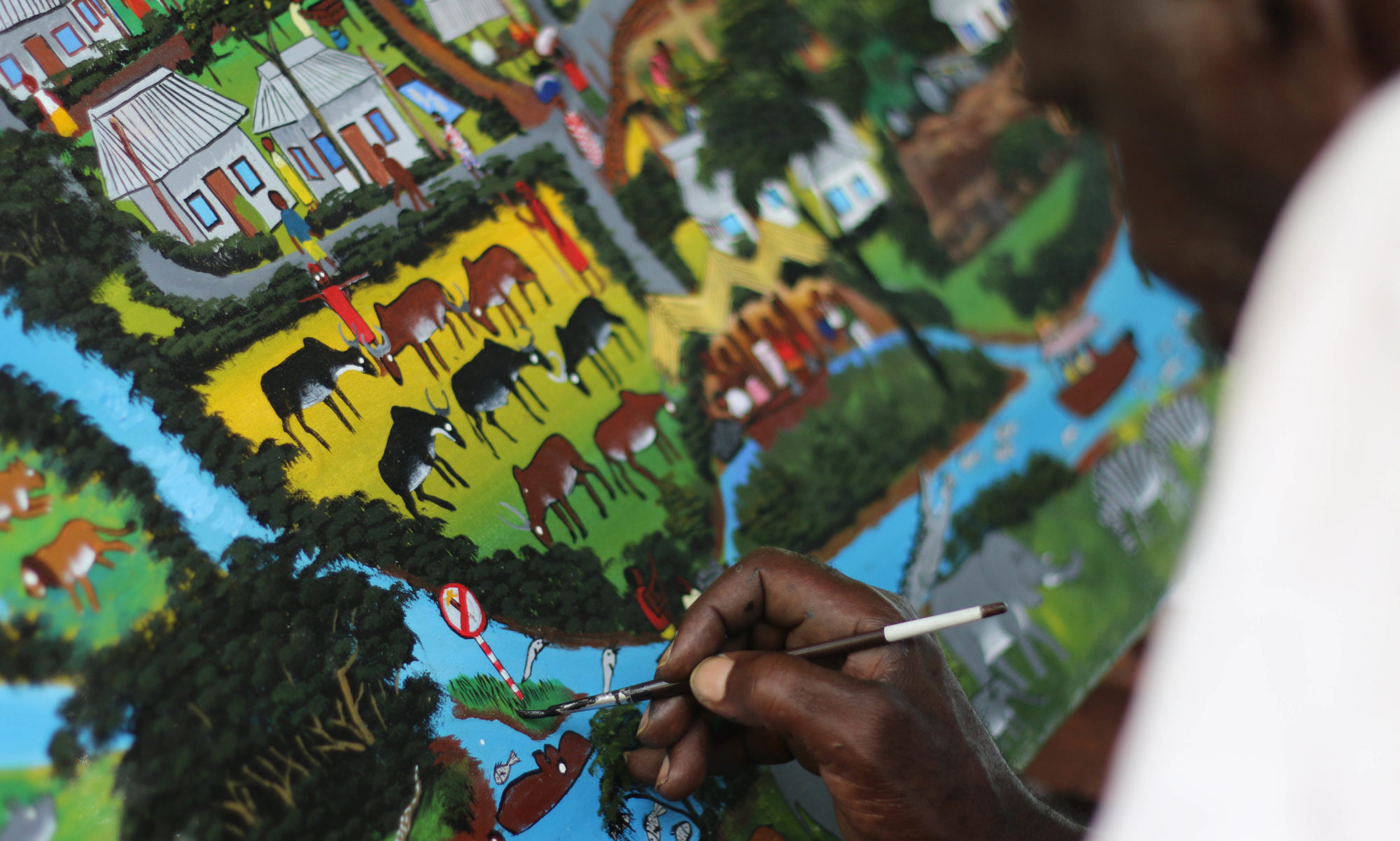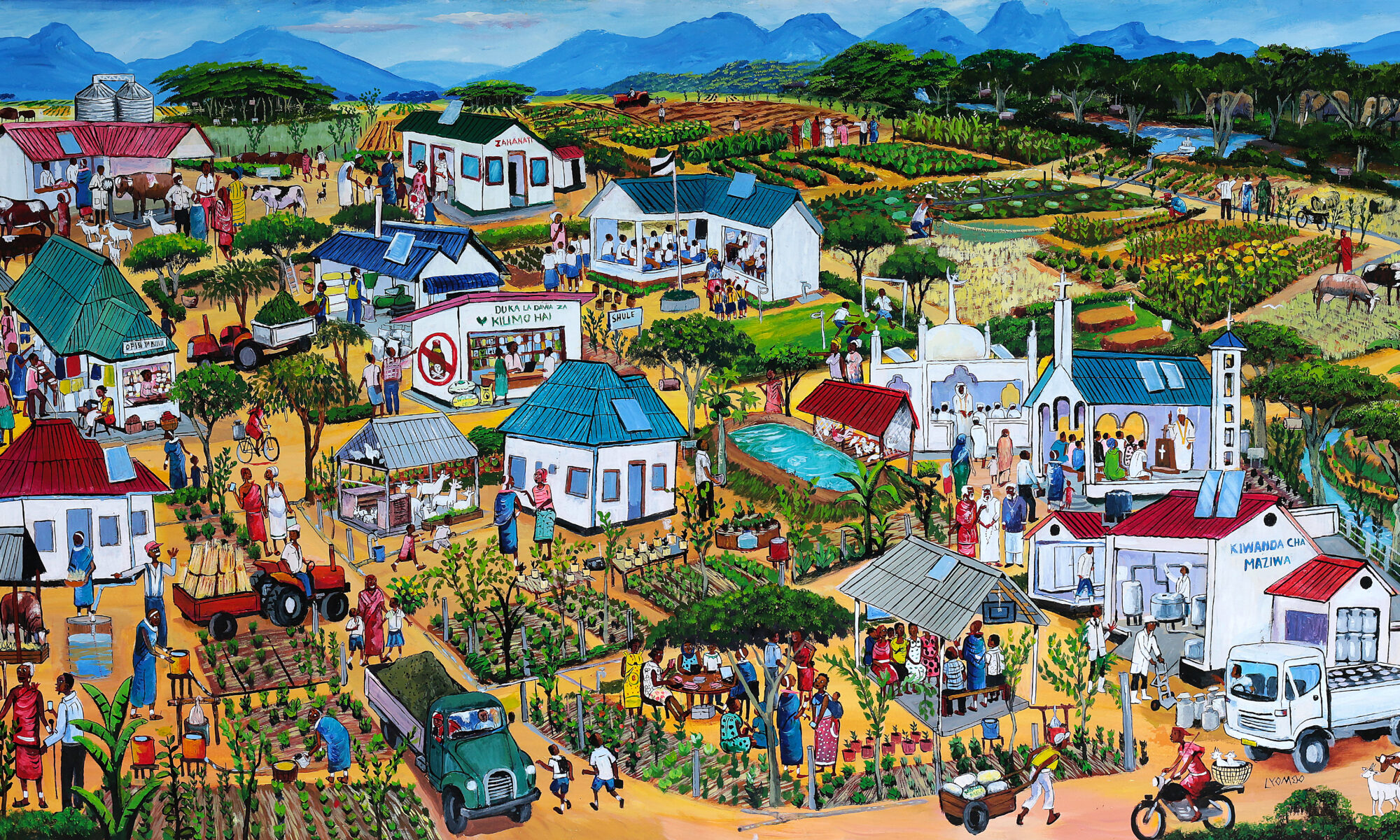Agroecological vision for peace and collaboration

Agro-shops
Agro-chemicals are banned, and no longer sold in agro-shops. Instead, farmers can purchase locally/domestically produced botanicals.
Farmer - pastoralist collaboration
Livestock keepers and farmers collaborate, for example by trading or selling residues to one another. Here, a livestock keeper sells manure to a farmer, which can be applied to the fields instead of inorganic fertilizers.
Farmer - pastoralist collaboration
Farmers and pastoralists collaborate with each other by selling of trading residues with each other. Here, a farmer is selling/trading plant residues (maize stalks) to a livestock keeper, to use as fodder. In this way, conflicts that are caused by livestock grazing on farmland are avoided.
Farmer and pastoralist collaboration
Farmers and pastoralists agree on when livestock can graze on farmland, after harvest. Instead of burning plant residues, it can be used as fodder for animals. Through mutual respect, understanding and agreements there is peace and collaboration between farmers and pastoralists.
Fish ponds integrated with chicken coups
There are fishponds to support local fish production, which serves as a nutrition source, and a way to diversify incomes. Chicken coups are placed over the fishponds so that the chicken poop fertilizes the water and feeds the fish.

